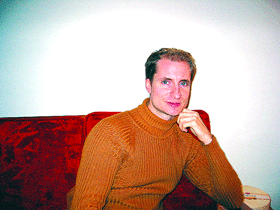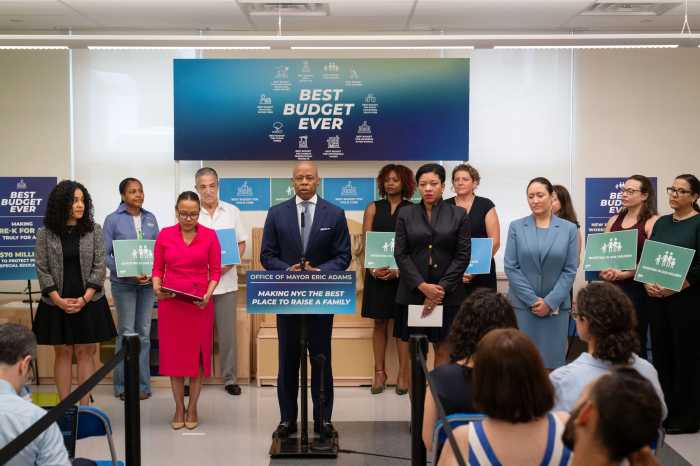Ohio native presents work with string quartet recruited in Philadelphia, New York
GAY CITY NEWS: What was the first major piece of music you composed and how has it influenced your current compositions?
DREW HEMENGER: When I was a kid, I used to turn on one of those old-fashioned tape recorders and record myself improvising at the piano. The first piece I actually wrote was in junior high school and was an assignment for my music theory class. It was a piano piece called “Spring Sonatina” in traditional classical form. It received the highest rating in a state competition but the panelist admonished me for being too conservative. I was annoyed at the time but now understand where he was coming from. My music now has little to do with the piece, except that I always try to communicate something of what I’m feeling, regardless of the musical language. As simple as it was, I think that piece did that in a simple, joyful way.
GCN: Which is the one piece of music that you’ve written that retains special significance for you?
DH: I wrote a piece for a cello and piano as a memorial for a close friend and ex-boyfriend who committed suicide. Due to some complications with the performers, it was not premiered and has never been played. I haven’t been promoting it and wonder if perhaps it’s too personal to actually be played in public. As for what to listen for, most of my music has some roots in a traditional tonality. Listen for the common ground of what you already know and open yourself to what’s being expressed in a language you may not be so comfortable with. You might find the experience rewarding.
GCN: How has your homosexuality influenced your musical style?
DH: I actually have a set of piano pieces entitled “Four Places in New York” where a couple of show tunes are woven into the second movement. One of these pieces, “Christopher Street,” is about walking down that street and hearing various sounds and music, such as singing coming out of the cabaret bars.
Other then that, I can’t say that my style has been specifically influenced by my sexuality, but perhaps some of my content choices have been. There’s a certain school of successful gay composers who matured in the ‘60s and ‘70s—David Del Tredici, John Corigliano, Ned Rorem—who have some similarities to their style and who have certainly had an influence on me. David, a Pulitzer Prize-winner, is extremely out and has written songs with texts about “Alice in Wonderland” as well as S&M. While I haven’t written any songs with any undertones of S&M, his being out has helped me to realize that being an artist is sometimes about creating art that isn’t always comfortable for everyone, including myself.
GCN: On the business side of producing your music, do you find that being openly gay hinders that process or is your sexuality a non-issue?
DH: It definitely hasn’t been a hindrance. There have been a few commissions that were facilitated by connections enhanced by my sexuality. That’s not to say that I might not have made different connections if I weren’t gay. However, there’s no point in my denying that there are more people in the classical music community than in the larger population, but it’s certainly nowhere close to 50 percent and therefore, I would say that the supportiveness of the gay community in general has been a help.
And yet, like everywhere else, there is bigotry. I heard a story about John Corigliano when a church commissioned him to write a choral work and then rescinded after they read an article about him mentioning his sexuality.
GCN: When you compose, what is the one thing you try to achieve with each piece of music? Have you ever made a mistake and incorporated it into the final work?
DH: There is always a reason for every piece. Sometimes, the reason is to express a loss, a joy or other deep emotion. Sometimes, the reason is simply that someone asked me to write the piece and I agreed… I try to achieve the goal of putting the notes on a page in such a way that I can live with what is there and that the musician can play it. I don’t mean that to sound flippant. And yes, there have been many times when a mistake has turned out to be a new or better idea.
GCN: How often do you think about music and how do you get into the creative zone?
DH: I hear music constantly. At almost any time of day, you can ask me what I’m listening to and I’ll answer, Shostakovich’s piano concerto or Britten’s opera, “Peter Grimes” or even Hemenger’s “String Quartet.” I often find myself “listening” to music I’m working on while subconsciously working on some other problem not pertaining to music… I have gone several times to the Virginia Center for the Arts, one of several artist colonies I’ve been to where the beautiful, rural atmosphere and artistic community creates an unbelievably productive environment for me. They basically give you a bed and a studio, feed you and leave you alone. When I’m home, I have to turn off everything and close all the doors in order to write.
GCN: Where do you see your career heading?
DH: In two years, I would hope to have completed a commission for a mid-sized orchestra and increased public performances by a substantial percentage.
gaycitynews.com



































